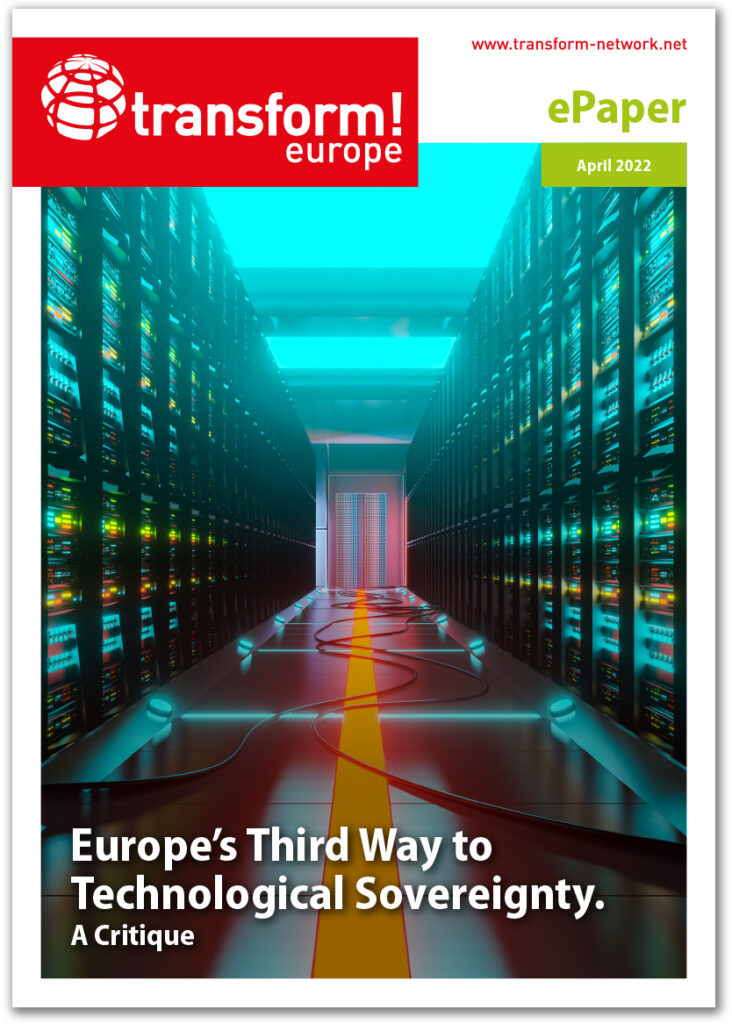The European Union is witnessing a radical epistemic and societal change. The way we communicate, produce, socialise, and even govern, are being shaped by privately owned digital infrastructures.
People in places as different as Spain and Poland are funneled through the same private conducts to culture, jobs and potential romantic partners. An ultralibertarian version of capitalism has been able to own the public sphere. Data, an abstract, elusive and imprecise concept, has become key to understanding the conditions enabling the (re)production of capital.
Recently, discourses on European digital sovereignty have gained momentum. Faced with an enormous pressure from France and German national industries to advance their interests in the digital economy in the face of Trump’s protectionist offensive and the enveloping opening of Xi Jinping, the EU is trying to impose an idea that takes us back to his foundational scenario: the promotion of greater competition will bring about the flourishing of European giants.
We propose instead a Democratic Technological Development not shaped by market rules, but inspired by the ideas of solidarity, cooperation and wealth distribution. A community-centered technological development built on the basis of democratic digital infrastructures. A fair ecosystem where vast networks of cooperatives can flourish. A space where the logic underpinning digital services is that of the common well-being, the respect for fundamental human rights, and not the profits of shareholders. A space where concepts such as digital economy does not equate with disinformation, data and resource extractivism or algorithmic discrimination.
First of all, new technological tools can be an opportunity to advance in the processes of democratisation and transparency that institutions require.
Second, the foundation of a digital economy must be built on public infrastructure and it must be ensured that citizens can take advantage of its full potential.
Third, the only way to regain democratic control of industrial platforms is the collective ownership of these infrastructures by creative agents, who must have the capacity to organise themselves at the political level to design and create institutions capable of socialising the benefits of human action on nature.
Please find the ePaper on the left/below (mobile version) in ‘Documents’ (English, PDF).
Table of contents
Introduction: A Clash between models: USA, China, and the European Union
Silicon Valley doctrine
Adam Smith in Beijing? Chinese’s path to digital capitalism
European Union, the road to the colony
Part I: Europe’s Third Way
Building a new old Single Market
The Ordoliberal Dogmas of the Juncker Strategy: The Limits of Antitrust Policy
Tax on digital services, pillars of a new social order?
The limited political dimension of privacy regulation
European Artificial Intelligence Strategy, Digital Sovereignty or Empty Words?
Europe’s Battle for Discourse
Part II: The Franco-German axis
Macron’s Start-up Nation
The hype of the German Industry 4.0
Part III: The Gaia-X project, fake technological sovereignty
What to do?
